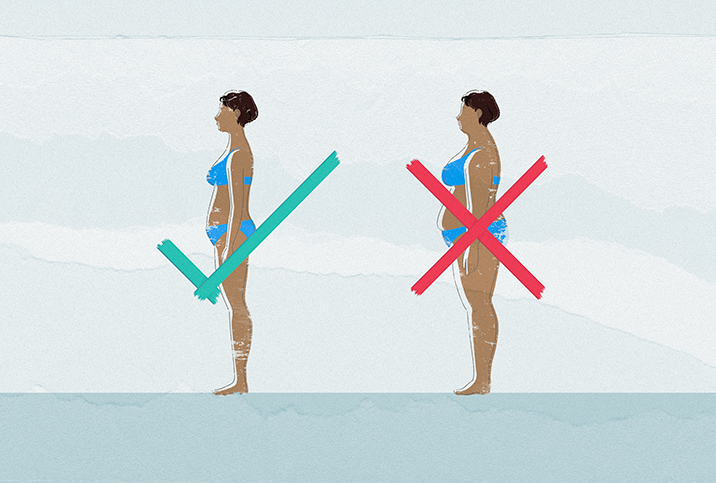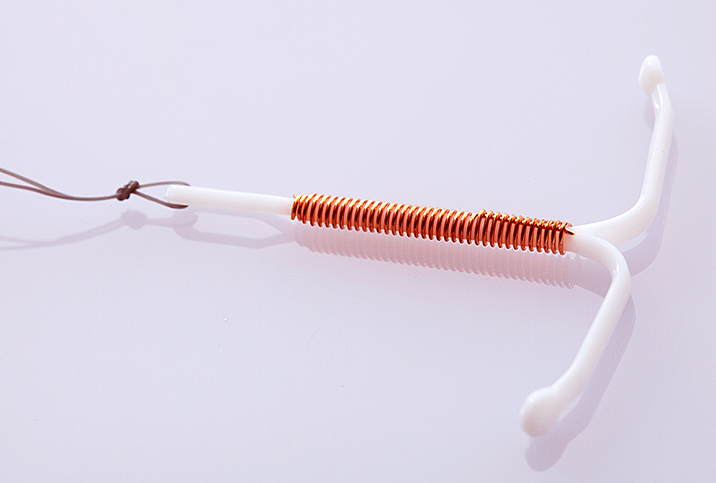What's the Yuzpe Method?

Emergency contraception is usually a safe option to reduce the risk of pregnancy if you had unprotected sexual intercourse. It mainly comes in two forms: the copper-releasing intrauterine device (IUD) and emergency contraceptive pills, which include levonorgestrel (popularly known as Plan B) and ellaOne.
The copper IUD works by preventing implantation when inserted up to five to seven days after unprotected sex or up to five days after the earliest estimated day of ovulation. The IUD is the most effective form of emergency contraception and has the lowest failure rate at about 0.1 percent. It is also a form of ongoing contraception and requires insertion by a healthcare professional.
Oral emergency contraceptives delay or prevent ovulation.
"Levonorgestrel works up to 72 hours after unprotected sex and has a failure rate of 1.7 percent to 2.6 percent," said Michelle Swer, M.B.B.Ch., M.R.C.O.G., consultant gynecologist for London Gynaecology at the Portland Hospital in London. "EllaOne works up to 120 hours after unprotected sex and has a failure rate of 0.9 percent to 1.7 percent."
Combined oral contraceptive pills that contain both estrogen and progestin can be used as emergency contraception, however, there's a caveat.
Plan B is commonly available over the counter, and ellaOne requires a prescription.
While these options are easily accessible for many women in the United States, emergency contraception is not always available in certain parts of the world. A whopping 47 countries have not registered any brand of the emergency contraceptive pill, according to the International Consortium for Emergency Contraception (ICEC). And the IUD is prevalent in only a handful of countries.
With the pill being used by more than 20 percent of women of reproductive age in 27 countries worldwide, as indicated in a 2019 United Nations report, using birth control as emergency contraception presents an alternative.
But can you really replicate the efficacy of emergency contraception like Plan B with birth control pills and is it safe to do so?
Combined oral contraceptive pills that contain both estrogen and progestin can be used as emergency contraception, however, there's a caveat, according to Danielle Frock-Welnak, M.D., M.P.H., a board-certified gynecologist at the University of Colorado Health Women's Care Clinic.
"This method is associated with more side effects and higher rates of unintended pregnancy," Frock-Welnak noted. "That said, it's often more convenient and cost effective."
How does it work and what is its efficacy?
Taking a combination estrogen/progestin pill as emergency contraception is popularly known as the Yuzpe method. This regimen is most effective when taken within 72 hours after having unprotected sex. Various studies show it is about 56.4 percent to 89.3 percent effective depending on the timeliness of use after unprotected sex.
Oral contraceptives come in a variety of doses. The dose for ethinyl estradiol—the estrogen component—generally ranges between 10 and 35 micrograms (mcg), Frock-Welnak noted. The progestin component is variable in both name and dose.
"In order to prevent pregnancy, oral contraceptives should be combined to provide 100 mcg of ethinyl estradiol and 0.5 mcg of progestin, preferably levonorgestrel," Frock-Welnak explained. "This dose is taken twice, 12 hours apart."
The amount of pills to take varies with each brand. This table by UpToDate, a medical resource, provides a list of the specific number of pills that add up to the required dosage for various brands of combined oral contraceptives.
If the brand of birth control you are using is not provided in the table and/or you are unsure about whether the brand you have can be used as emergency contraception, consult your healthcare professional.
This method works by delaying or preventing ovulation, although it would not stop a pregnancy if you are already pregnant.
Possible side effects
As a result of the high amount of estrogen being taken, Swer explained that you may experience nausea and vomiting as possible side effects of the Yuzpe method.
"If you throw up within two hours after taking a dose, you should repeat the dose," she advised.
Other side effects that you may experience include:
- Breast tenderness
- Fatigue
- Irregular bleeding
- Abdominal pain
- Headache
- Dizziness
These symptoms last just a few days, although not everybody experiences them.
When should you see a doctor?
Since the Yuzpe method is less effective than other forms of emergency contraception, such as the copper-releasing IUD, Plan B and ellaOne, it should only be used when there is no access to the more effective methods.
It's best to speak to your doctor before adopting this method because they may advise you on the most suitable form of emergency contraception that works for you.
If you have a contraindication to estrogen, utilizing this method could be harmful to your health. For women who smoke and are older than 35, studies suggest that using combined oral contraceptives could increase their risk of cardiovascular complications such as blood clots. In addition, birth control pills might be less effective if you are obese or overweight.
"Such patients should speak to their doctor and consider IUD placement for emergency contraception, which has no weight restriction," Frock-Welnak said.
If you aren't already using some form of ongoing contraception, you may wish to discuss this topic with your doctor.


















